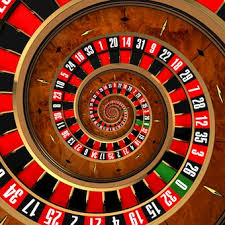5 Dangers of Gambling Addiction
As harmless as a few rounds at the slot machine may seem, someone who struggles with gambling addiction will likely spend all his or her money before the night ends. Like other forms of addiction, gambling can start out as a casual pursuit that gradually consumes a person’s money, time and overall quality of life.
According to the U. S. National Library of Medicine, gambling addictions work in much the same way as impulse control disorders, where addicts lose the ability to make sound judgments or acknowledge the negative consequences the behavior brings.
Someone struggling with a gambling addiction can expect to see his or her life slowly fall apart as the addiction grows stronger. In effect, the dangers of gambling addiction bear a striking resemblance to the dangers associated with alcohol and drug addictions. Here are five of the most common dangers that can result from an addiction to gambling:
1. Loss of Control
More than anything else, an inability to control one’s behaviors characterizes an addiction problem. In a very real sense, gambling becomes an obsession in a person’s life, taking on greater and greater importance the longer the addiction persists.

A gambling problem often spirals down and out of control, causing significant troubles on the way.
This loss of control inevitably affects other areas of life or rather, any life area that happens to get in the way of the addict’s gambling activities. Without needed treatment help, the addict may well sacrifice anything and everything to support his or her addiction behaviors.
2. Lifestyle Changes
Addiction, in general, takes root within the mind of the addict and becomes the ultimate crutch for coping with daily life stressors and responsibilities. This state of mind becomes increasingly apparent in the lifestyle changes that result from a gambling addiction.
Lifestyle changes may take the form of:
- Financial difficulties
- Troubled relationships
- Decline in appearance and/or hygiene
- Disinterest in previously enjoyed activities
- Job loss
- Lying, deception
3. Co-Occurring Conditions
The “high” that comes with gambling triggers a surge of neurotransmitter chemicals in the brain. Over time, these changes can create brain chemical imbalances and ultimately disrupt normal brain function.
According to the University of North Carolina, ongoing chemical imbalances place addicts at a high risk of developing co-occurring psychological disorders. Conditions commonly associated with gambling addiction include:
- Anxiety-based disorders
- Anti-social personality disorder
- Depression-based disorders
- Criminal Activity
It’s no real surprise that gambling addictions require a continuous stream of financing. Likewise, maintaining a stream of “disposable” income may well place addicts in more than a few precarious situations. According to Georgia State University, an estimated 50 percent of gambling addicts resort to criminal activity as a means for supporting their addiction.
4. Alcohol & Drug Influences
Addiction, by its very nature, breeds compulsive behavior in most any form. In turn, the likelihood a person will develop a gambling addiction increases by 23-fold when he or she already struggles with an alcohol or drug addiction, according to the University of New York. The overall loss of control and lack of structure in addicts’ lives makes them all the more susceptible to engaging in other forms of compulsive behavior.



